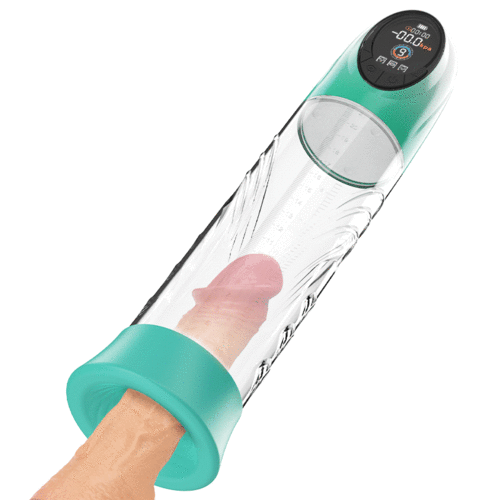Every Friday on the blog, I answer people’s questions about sex, love, and relationships. This week’s question comes from a reader who wanted to know the following:
“I saw a talk show with a woman who claimed she was allergic to her boyfriend’s semen. Is that even possible?”
Good question! The answer is yes—some women are indeed allergic to semen. Medically, this is known as Hypersensitivity to Human Semen (HSS), but I have seen it referred to by other names before, including “burning semen syndrome.” The first case of HSS was reported over a half-century ago and, since then, dozens of others have been documented. Most of these case reports describe HSS as a rare condition; however, some doctors think that we have understated the prevalence because HSS is easily confused with other gynecological health issues, such as vaginitis and sexually transmitted infections [1]. In fact, I have seen some media headlines claim that as many as 12% of women may have semen allergies; however, I don’t know of any research that would back up a number quite that high.
The exact cause of HSS is not known, but it is suspected that the allergic reaction occurs in response to glycoproteins from the prostate gland. Contrary to popular belief and some early medical reports referring to HSS as a “sperm allergy,” it is not sperm that these women are allergic to, but rather other components of male ejaculate. How do we know this? Consider this study: four women who had previously experienced semen allergies brought samples of their male partners’ ejaculate to the lab [1]. For each sample, doctors separated the sperm from the seminal fluid with a centrifuge. Each woman then had her skin pricked, once with “washed sperm” and once with seminal fluid. All of the women showed an allergic reaction to the seminal fluid, but none did in response to the sperm.
The symptoms of HSS can vary, but at the very minimum, they usually involve redness, swelling, and itching in the genital area that begins within an hour after semen exposure. However, some women experience more severe symptoms, and at least a few have had anaphylactic reactions, which are potentially deadly [2]. (On a side note, I posted an article a while back about a woman who died due to an allergic reaction to dog semen. If you don’t want to know how she came into contact with dog semen, don’t read this article)
So is there anything that can be done? Well, the obvious solutions are abstinence and condoms—basically anything that will prevent affected women from being exposed to semen. However, these solutions are not practical for all couples (e.g., what should a woman with HSS do if she wants to become pregnant?). As a result, immunotherapy is the preferred option for many [3]. By “immunotherapy,” I mean injecting a small dose of an allergen under your skin on a regular basis with the goal of making your body less sensitive to it. Most people get immunotherapy for allergies to trees, molds, dogs, and/or cats, but some women do this for HSS. Yes, that’s right—some women are getting a regular shot of semen in the arm. In addition to semen shots, these women are usually instructed to have sex every 48 hours or so. This frequent exposure is necessary to maintain the tolerance their bodies have built up to semen, especially in cases of more severe allergies.
Unfortunately, we lack data on long-term outcomes for women with HSS; however, the good news is that there are treatment options available and HSS does not necessarily require giving up your sex life.
For previous editions of Sex Question Friday, click here. To send in a question for a future edition, click here.
Want to learn more about Sex and Psychology? Click here for previous articles or follow the blog on Facebook (facebook.com/psychologyofsex), Twitter (@JustinLehmiller), or Reddit (reddit.com/r/psychologyofsex) to receive updates.
[1] Carroll, M., Horne, G., Antrobus, R., Fitzgerald, C., Brison, D., & Helbert, M. (2013). Testing for hypersensitivity to seminal fluid-free spermatozoa. Human Fertility, 16(2), 128-131.
[2] Tomitaka, A., Suzuki, K., Akamatsu, H., & Matsunaga, K. (2002). Anaphylaxis to human seminal plasma. Allergy, 57(11), 1081-1082.
[3] Lee-Wong, M., Collins, J. S., Nozad, C., & Resnick, D. J. (2008). Diagnosis and treatment of human seminal plasma hypersensitivity. Obstetrics & Gynecology, 111(2, Part 2), 538-539.
Image Source: 123RF.com
You Might Also Like:


 Anal Beads
Anal Beads Anal Vibrators
Anal Vibrators Butt Plugs
Butt Plugs Prostate Massagers
Prostate Massagers
 Alien Dildos
Alien Dildos Realistic Dildos
Realistic Dildos
 Kegel Exercisers & Balls
Kegel Exercisers & Balls Classic Vibrating Eggs
Classic Vibrating Eggs Remote Vibrating Eggs
Remote Vibrating Eggs Vibrating Bullets
Vibrating Bullets
 Bullet Vibrators
Bullet Vibrators Classic Vibrators
Classic Vibrators Clitoral Vibrators
Clitoral Vibrators G-Spot Vibrators
G-Spot Vibrators Massage Wand Vibrators
Massage Wand Vibrators Rabbit Vibrators
Rabbit Vibrators Remote Vibrators
Remote Vibrators
 Pocket Stroker & Pussy Masturbators
Pocket Stroker & Pussy Masturbators Vibrating Masturbators
Vibrating Masturbators
 Cock Rings
Cock Rings Penis Pumps
Penis Pumps
 Wearable Vibrators
Wearable Vibrators Blindfolds, Masks & Gags
Blindfolds, Masks & Gags Bondage Kits
Bondage Kits Bondage Wear & Fetish Clothing
Bondage Wear & Fetish Clothing Restraints & Handcuffs
Restraints & Handcuffs Sex Swings
Sex Swings Ticklers, Paddles & Whips
Ticklers, Paddles & Whips




















